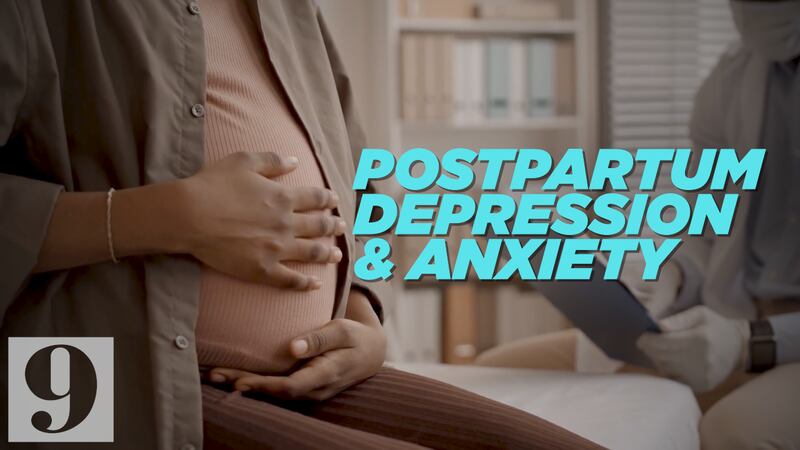ORLANDO, Fla. — One in three moms experienced postpartum depression or anxiety during the pandemic.
>>> STREAM CHANNEL 9 EYEWITNESS NEWS LIVE <<<
9 Investigates pandemic parents still struggling and why it’s not too late to get the help you need at 5 p.m. Monday on Channel 9 Eyewitness News.
Experts worried it would happen -- now, the numbers prove it did.
A recently published study shows triple the number of new mothers experienced postpartum depression during the COVID-19 pandemic, adding to the pandemic-related mental health crisis.
It breaks down to one in three new moms experiencing postpartum depression in the early part of the pandemic, and increased levels of anxiety and distress as well.
Read: ‘You’re on edge every second’: Rising housing costs squeeze buyers, tenants
One in five new moms reported having major depression, meaning they had thoughts of harming themselves.
Experts said the isolation experienced during the pandemic put a lot of people in the same situation.
“People who haven’t been through this just really don’t understand,” new mom Rachel Diamond said.
“My anxiety was very heightened before even giving birth, and it definitely felt like that was pandemic-based,” said Jeanette Johnson, who is also a new mother.
Diamond and Johnson both gave birth to boys in mid-2021, meaning their entire pregnancies were during the pandemic.
Months after giving birth, they were both diagnosed with postpartum psychiatric disorders.
For Diamond, it was postpartum obsessive compulsive disorder, related to fear of contamination.
“It means you are hyperaware of germs and the trail of germs,” she said. “In some people, it’s themselves or loved ones. For me, it’s specifically (my son), Theo, and myself, as a result of that, while I was pregnant with him.”
For Johnson, it was postpartum anxiety and depression, with a major fear of separation from her son, August.
“I did think for so long that my feelings about the baby and wanting to be with him all the time was simply just that love that people talk about,” she said. “But there was so much darkness there, and so many intrusive thoughts, too.”
Studies now prove they’re not alone.
New research from the University of Michigan School of Nursing and Michigan Medicine suggests that one in three new moms experienced postpartum depression in the early parts of the pandemic, potentially tripling prepandemic numbers.
A separate study from the same group of researchers found those who gave birth during the first six months of the pandemic reported more distress and anxiety.
“And worst case scenario is suicidal thoughts,” said Cherlette McCullough, a licensed family therapist. “A lot of moms experienced that. That’s when it was a wake up call, like, I need to get some help.”
Read: Arrest made after home inspection company finds dead dogs in Central Florida home
McCullough said that pandemic parents were forced to function in isolation with the looming fear of being exposure to COVID-19.
Some even had to attend prenatal appointments or give birth alone due to clinic and hospital restrictions.
“A lot of moms are not open to talking about this, because it kind of gives them that guilt or shame of, I shouldn’t be feeling like this, so I shouldn’t talk about it,” McCullough said.
For Diamond, the wake up call came in the form of a panic attack last spring.
“I had thought that I could work through it on my own until that point, (when) I realized I am losing time with my baby just because I’m so wrapped up in all of the what-ifs,” she said
Both mothers shared that sentiment, and since both were diagnosed months after their babies were born, they want to urge other new moms to seek help if anything feels off.
Read: Rockledge officer injured in early morning crash in Brevard County
“It’s robbing me and the baby of this time together, because I’m not able to care for myself in the most basic way, which then affects how you can take care of the baby,” Johnson said.
McCullough said a delayed diagnosis is not uncommon, because postpartum disorders can often be misconstrued as the so-called “baby blues,” which is caused by a sudden hormonal change following childbirth.
Click here to download the free WFTV news and weather apps, click here to download the WFTV Now app for your smart TV and click here to stream Channel 9 Eyewitness News live.
©2022 Cox Media Group







